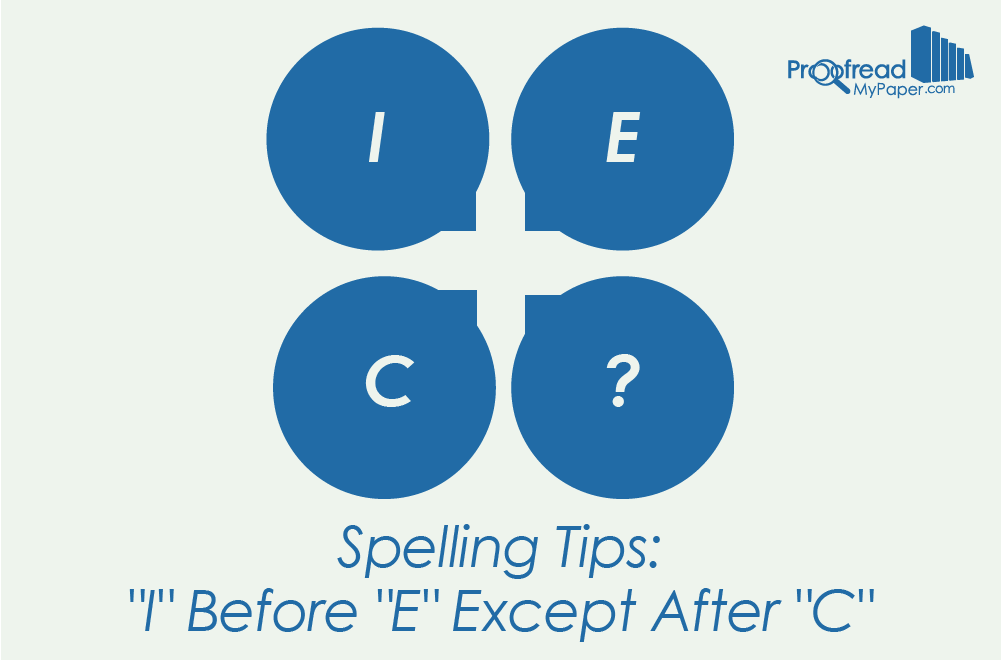Vowel order can be tricky in English, since there isn’t always an obvious connection between how a word is spelled and the way it sounds. The “ee” sound in “believe,” for instance, is the same as in “deceive.” But the vowels in the middle of these words are reversed.
The key difference is that “deceive” is spelled with a “c,” which is why we use the rhyme “i before e except after c” to remind us how to spell certain words.
“I Before E Except After C”
The phrase “i before e except after c” is a mnemonic: i.e., something that helps us remember something. In this case, it reminds us that “i” comes before “e” in many words, except when they are preceded by a “c.”
We’ve seen how this works with “believe” and “deceive,” but there are plenty of extra examples to help make it clearer:
|
“ie” (No “c”) |
“ei” (After “c”) |
|
Achieve |
Perceive |
|
Diesel |
Ceiling |
|
Belief |
Conceivable |
|
Acquiesce |
Receipt |
|
Piece |
Receive |
The Exceptions…
As with most rules in English, “i before e except after c” is only a guideline and there are plenty of words that don’t follow this pattern. In fact, there are 923 English words spelled with “-cie-,” which means there are more exceptions to this rule than words that follow it!
Find this useful?
Subscribe to our newsletter and get writing tips from our editors straight to your inbox.
Many words that end “-cy,” for example, are spelled with “-cies” when pluralized (e.g., when “democracy” becomes “democracies”). Comparatives and superlatives may also require using “-ie-” after “c” (e.g., when “bouncy” becomes “bouncier” or “bounciest”).
To make matters more confusing, we also have words that contain an “ee” sound but don’t have a “c,” yet which are spelled with an “-ei-” (e.g., “weird” or “caffeine”).
The point is that “i before e except after c” is sometimes helpful if you’re not sure how to spell a word. However, there are many cases in which this does not apply. This makes it particularly important to proofread your work, checking the spelling of any words about which you’re uncertain.
